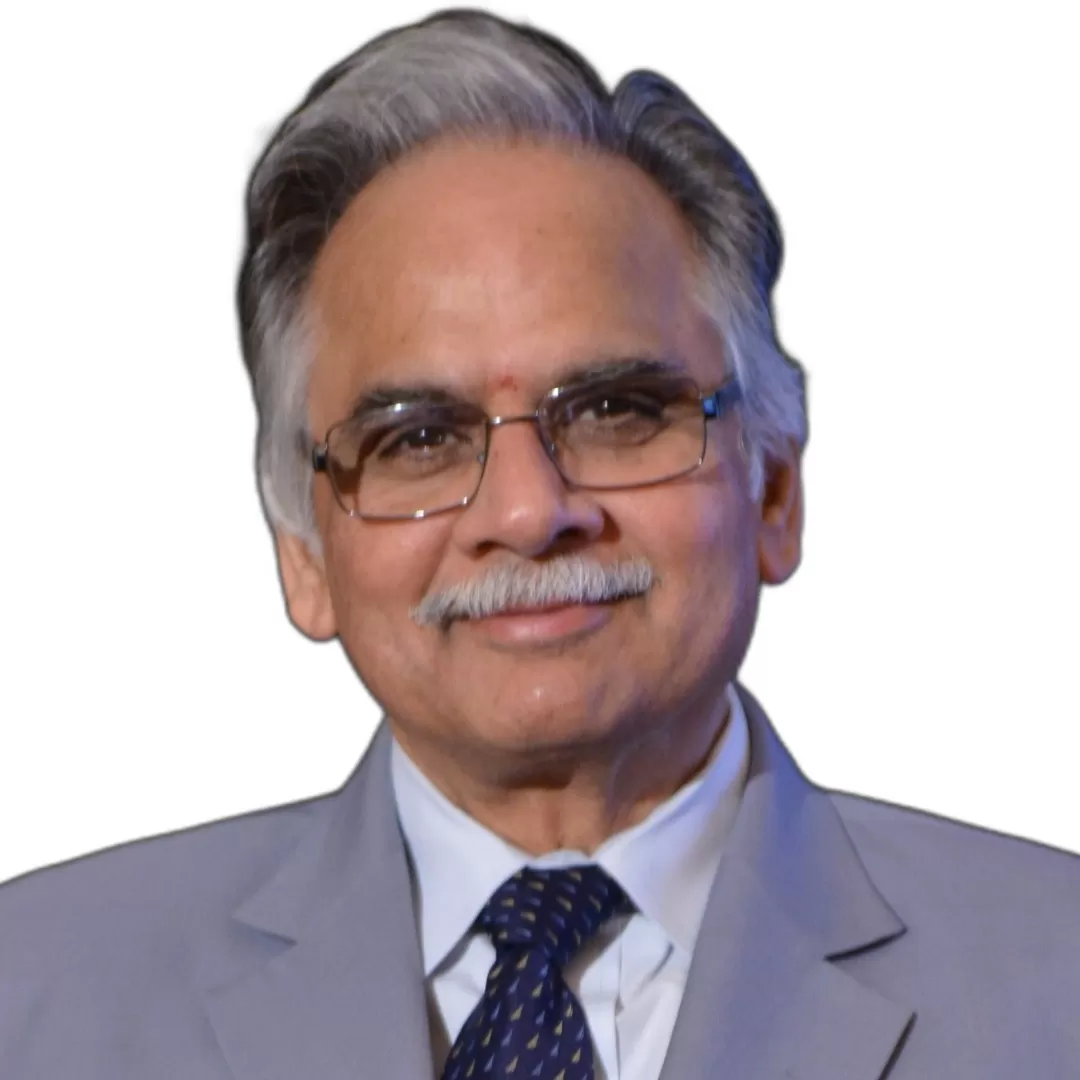Dr. Vidyasagar received the B.S., M.S. and Ph.D. degrees in electrical engineering from the University of Wisconsin in Madison, in 1965, 1967 and 1969 respectively. Between 1969 and 1989, he was a Professor of Electrical Engineering at Marquette University, Concordia University, and the University of Waterloo. In 1989, he returned to India as the Director of the newly created Centre for Artificial Intelligence and Robotics (CAIR) in Bangalore, under the Ministry of Defence, Government of India. In 2000, he moved to the Indian private sector as an Executive Vice President of Tata Consultancy Services where he created the Advanced Technology Center. In 2009, he joined the Erik Jonsson School of Engineering & Computer Science at the University of Texas at Dallas, as a Cecil & Ida Green Chair in Systems Biology Science. He continues his association with IIT Hyderabad as an SERB Distinguished Fellow.
His research interests are in the broad area of system and control theory, and its applications. At present he is interested in the area of compressed sensing, and the intersection between compressed sensing and control theory. On the applications front, he is interested in applying ideas from machine learning to problems in computational biology with emphasis on cancer. Vidyasagar has received a number of awards in recognition of his research contributions, including Fellowship in The Royal Society, the IEEE Control Systems (Technical Field) Award, the Rufus Oldenburger Medal of ASME, the John R. Ragazzini Education Award from AACC, and others. He is the author of twelve books and 150 papers in peer-reviewed journals.
Research Interests:
- System and Control Theory
- System and Control Theory Applications
Achievements:
- 2017: Named as 125 "People of Impact" during the 125th anniversary of the Department of Electrical Engineering, University of Wisconsin
- 2018: Member TAMEST (The Academy of Medicine, Engineering and Science of Texas), open only to Members of the National Academies of Medicine, Engineering, and Sciences, and to Fellows of The Royal Society, based in Texas.
- 2019 SERB (Science and Engineering Research Board) Distinguished Fellowship.
- 2020 SERB National Science Chair
- Doctor of Philosophy (PhD) in Electrical Engineering, University of Wisconsin, Madison, USA
- Master of Science in in Electrical Engineering, University of Wisconsin, Madison, USA
- Bachelors of Science in in Electrical Engineering, University of Wisconsin, Madison, USA
- Nitin Singh, Mehmet Eren Ahsen, Niharika Challapalli, Hyun-Seok Kim, Michael A. White, and Mathukumalli Vidyasagar, “Inferring Genome-Wide Interaction Networks Using the Phi-Mixing Coefficient, and Applications to Lung and Breast Cancer," IEEE Transactions on Molecular, Biological, and Multi-Scale Communications, 4(3), 123-139, September 2018.
- Mehmet Eren Ahsen and Mathukumalli Vidyasagar, “An Approach to One-Bit Compressed Sensing Based on Probably Approximately Correct LearningTheory," Journal of Machine Learning Research, 20, 1-23, 2019.
- Shashank Ranjan and Mathukumalli Vidyasagar, “Tight Performance Bounds for Compressed Sensing With Conventional and Group Sparsity," IEEE Transactions on Signal Processing, 67(11), 2854-2867, June 1, 2019.
- Masaaki Nagahara, Debasish Chatterjee, Niharika Challapalli, and Mathukumalli Vidyasagar,“CLOT Norm Minimization for Continuous Hands-of Control," Automatica, 113,March 2020, Article 108679.
- Mahsa Lotfi and Mathukumalli Vidyasagar, “Compressed Sensing Using Binary Matrices of Nearly Optimal Dimensions," IEEE Transactions on Signal Processing 68, 3008-3021, 2020.
- Shantanu Prasad Burnal and Mathukumalli Vidyasagar, “Deterministic Completion of Rectangular Matrices Using Asymmetric Ramanujan Graphs: Exact and Stable Recovery," IEEE Transactions on Signal Processing 68, 3834-3848, 2020.
- Santosh Ansumali, Shaurya Kaushal, Aloke Kumar, Meher K. Prakash and M. Vidyasagar, “ Modelling a Pandemic with Asymptomatic Patients, Impact of Lockdown and Herd Immunity, With Applications to SARS-CoV-2," Annual Reviews in Control, 50, 432- 447,Available online October 2020.
- Shaurya Kaushal, Abhineet Singh Rajput, Soumyadeep Bhattacharya, M. Vidyasagar, Aloke Kumar, Meher K. Prakash , and Santosh Ansumali, “Estimating the herd immunity threshold by accounting for the hidden asymptomatics using a COVID-19 specific model," PLoS One, 1-17, December 2020.
- Manindra Agrawal, Madhuri Kanitkar and M. Vidyasagar, \Modelling the spread of the SARS-CoV-2 pandemic { Impact of lockdowns & interventions," Indian Journal of Medical Research, 153, 175-181, January & February 2021.
- Shantanu Prasad Burnal, Kaneenika Sinha and Mathukumalli Vidyasagar, “New and Explicit Constructions of Ramanujan Graphs," The Ramanujan Journal, published on-line 15 April 2021.

